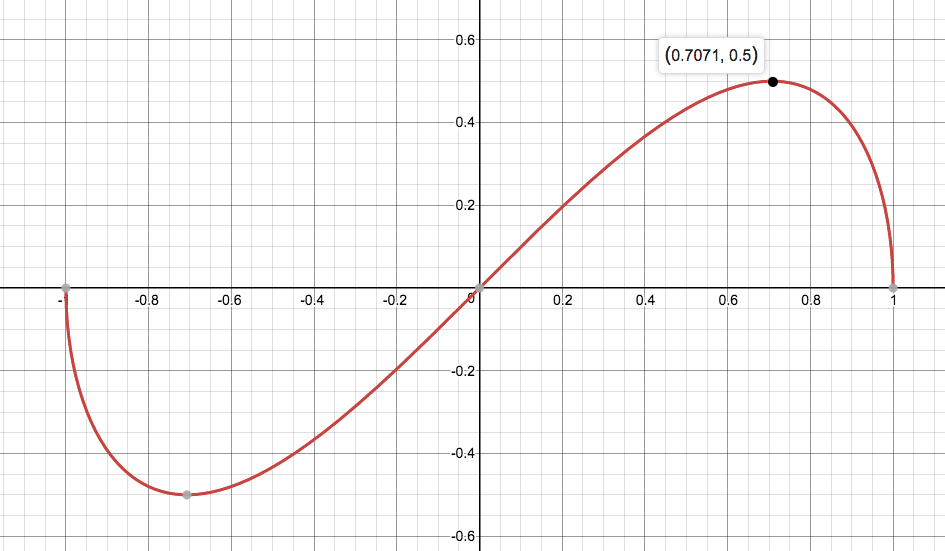At what point or points on the circle #x^2+y^2=1# does #f(x, y)=xy# have an absolute maximum, and what is that maximum?
2 Answers
See below.
Explanation:
Making a change of variables
and the restriction gives
so the problem is reduced to
for
Now
Absolute max
Explanation:
I wanted to provide an alternate way of answering this problem...
We know
So hence
Now to find the maximum we must set the differential to 0:
We must use our knowledge of the chain and product rule:
Setting
Using
Max
We can check that this is a maximum by taking
As



